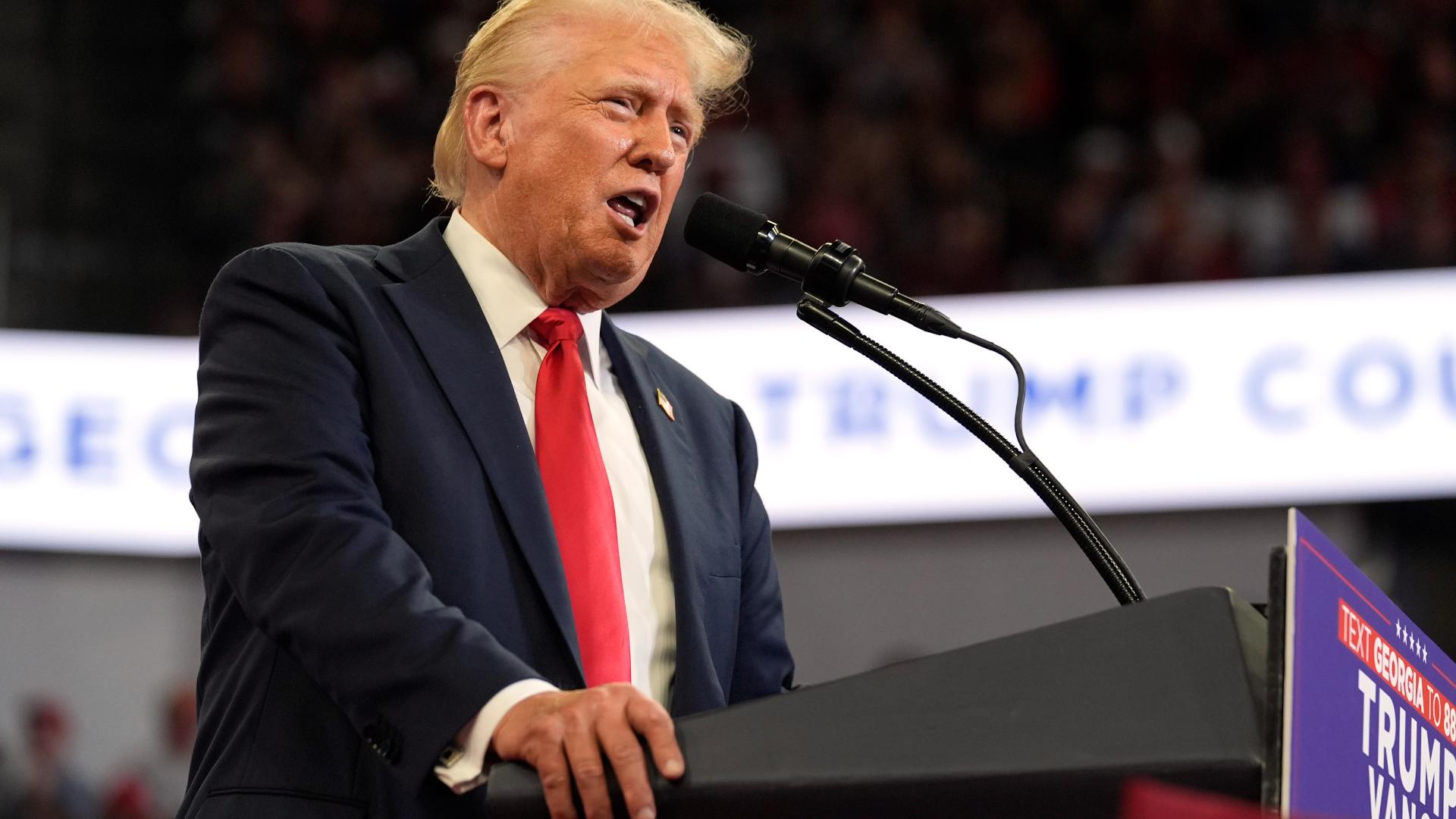ATLANTA — It's been one year since Fulton County grand jurors indicted former president Donald Trump and eighteen others. The case is far from over.
Wednesday marks the official one-year anniversary of the history-making indictment that charged Trump and his co-defendants in a sweeping RICO case, accusing them of unlawfully interfering with the 2020 presidential election.
In the year that followed, the case's momentum stalled.
Legal battles over the surprise revelation of a romance between Fulton County District Attorney Fani Willis and the special prosecutor she chose to help lead the case tied the proceedings up in a pre-trial appeal that's currently before the Georgia Court of Appeals. A hearing isn't scheduled until December.
Here's how the case got here--and what might happen next.
The indictment
On August 14, 2023, a Fulton County grand jury indicted former president Donald Trump and eighteen others in a sprawling election interference case.
"The defendants engaged in a criminal racketeering enterprise to overturn Georgia's presidential election result," said D.A. Willis shortly after the indictment was unsealed.
Four defendants have since pleaded guilty. The remaining fifteen -- including the former president -- maintain their innocence.

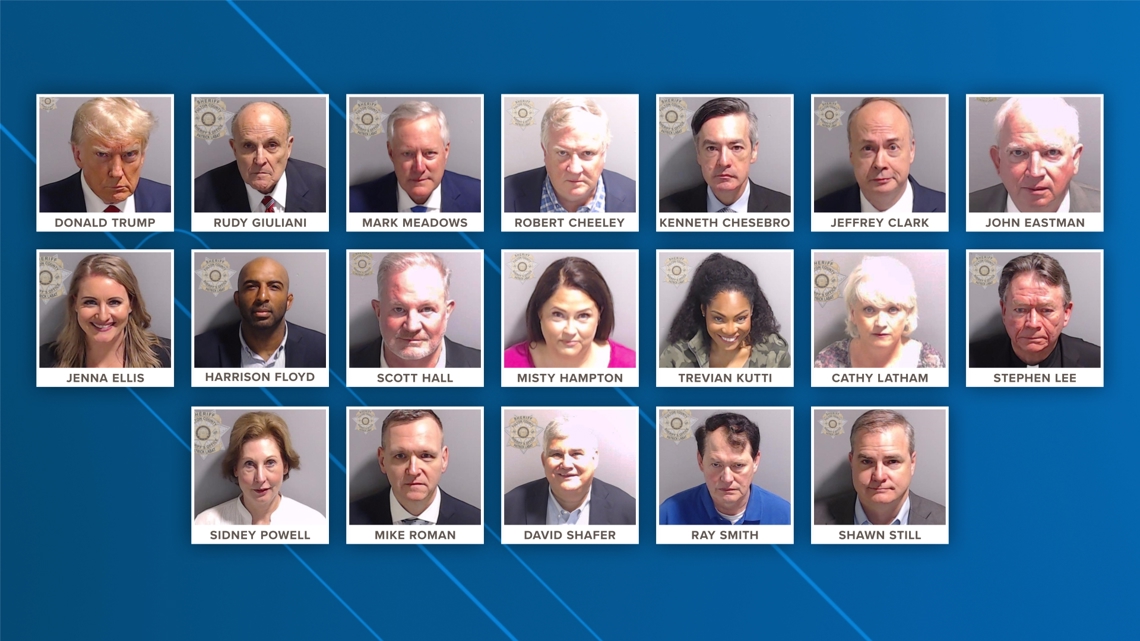
"What has taken place here is a travesty of justice," said Trump days after the indictment. "We did nothing wrong. I did nothing wrong."
The district attorney sought a speedy path to trial.
"We do want to move this case along and so we will be asking for a proposed order that [schedules] a trial date within the next six months," she said at a press conference announcing the charges.
But that didn't happen.
The disqualification saga
By January, the case's progress had stalled after defense attorneys revealed Willis had shared a romantic relationship with the special prosecutor she chose to lead the case: Nathan Wade.
"There's nothing secret or salacious about having a private life," said Wade at an evidentiary hearing earlier this year.
The ensuing legal battle over the relationship led to weeks of, at times, sordid court filings and testimony.
"It turned it away from a serious legal proceeding into a National Enquirer story," said former Republican Gwinnett County district attorney Danny Porter, who followed the proceedings but had no direct involvement in the case.
Wade did not respond to multiple requests to comment for this story. Willis, through a spokesperson, declined to comment.
Defense attorneys argued the relationship created a conflict of interest, allowing the pair to improperly financially benefit from the case.
Willis ultimately took the stand herself at a February hearing, telling defense attorneys that the relationship she said by then had ended never impacted her office's ability to impartially try the case.
"These people are on trial for trying to steal an election in 2020," she said. "I'm not on trial no matter how hard you try to put me on trial."
In March, Judge McAfee ruled the relationship did not rise to the level of an actual conflict of interest but still created a problem for the case.
"The established record now highlights a significant appearance of impropriety that infects the current structure of the prosecution team," wrote the judge in a March 15 order.
The judge gave prosecutors two options to cure it.
"The District Attorney may choose to step aside, along with the whole of her office, and refer the prosecution to the Prosecuting Attorneys' Council for reassignment," wrote McAfee. "Alternatively, SADA Wade can withdraw, allowing the District Attorney, the Defendants, and the public to move forward without his presence or remuneration distracting from and potentially compromising the merits of this case."

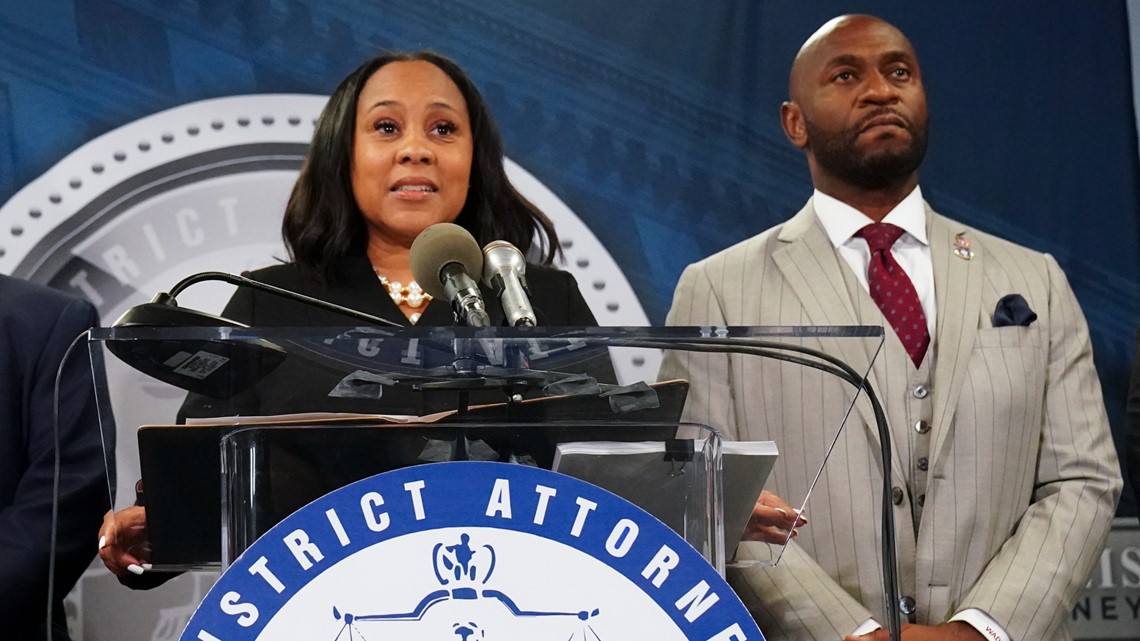
Hours later, Wade resigned from the case.
"I am offering my resignation in the interest of democracy, in dedication to the American public, and to move this case forward as quickly as possible," he wrote in the letter announcing his withdrawal.
The appeal
After Wade's resignation, Judge McAfee allowed the case to proceed. But it wasn't long until it hit another roadblock.
Defense attorneys moved to appeal the ruling, arguing the judge didn't go far enough and should have disqualified the entire Fulton County D.A.'s office from the case and dismissed the indictment.
Days later, Judge McAfee granted them a certificate of immediate review, allowing the defense team to immediately pursue a challenge to the ruling before the Georgia Court of Appeals.

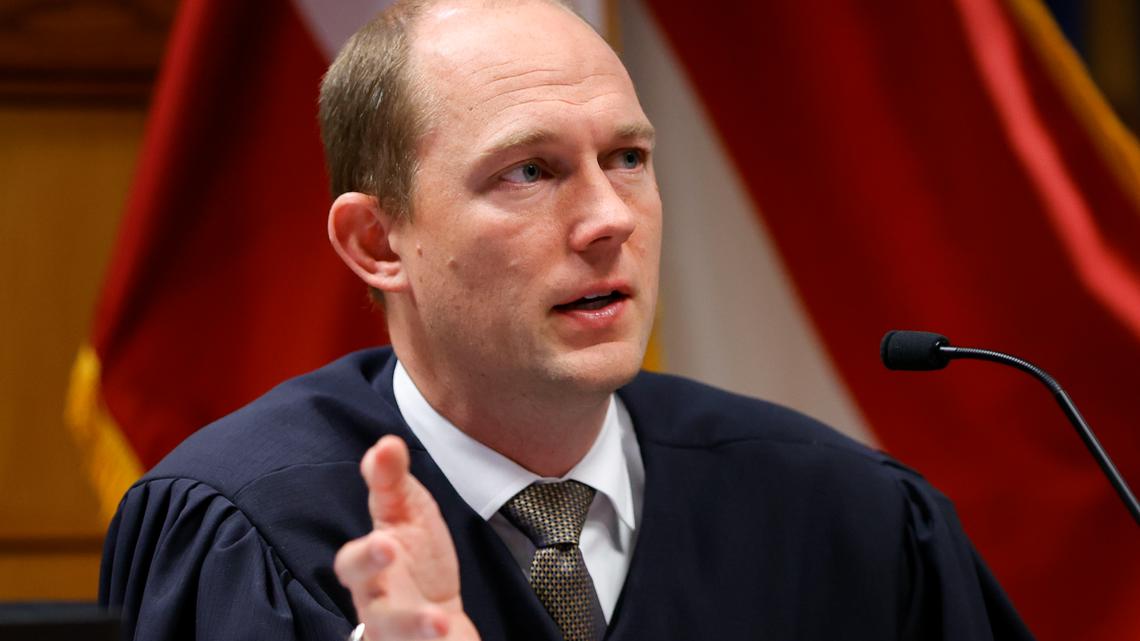
In May, the appellate court agreed to hear the appeal. In a subsequent order, the appellate judges effectively paused all forward progress at the trial court level until the disqualification appeal is resolved.
A hearing before the Court of Appeals is currently scheduled for December, a month after voters go to the polls in the presidential election.
The relationship's impact on the timeline
Could the case against former president Trump have made it to trial before the November election if the Willis-Wade relationship never occurred?
Robert James, a former Democratic Dekalb County district attorney who now works in private practice, didn't think so. He said other complications in the case, including the recent U.S. Supreme Court presidential immunity ruling, raised issues that would have taken significant time to sort out before a trial in Fulton County could begin.
Selecting a jury in a case involving such a well-known and polarizing defendant created additional timeline hurdles, he added.
"You've got to find twelve people that can swear that they're impartial," said James.
When asked how long that could take, he said: "forever."
"It could take months, if not longer," he added.
Danny Porter, the Republican former Gwinnett County district attorney, called the relationship an "unforced error" and said, without it, the case could have reached "at least" jury selection before the November election.
But he generally agreed with James that the jury selection process would be so time-consuming that reaching a verdict before the election was always unlikely.
"I think it would take forever," said Porter, drawing comparisons to the Fulton County YSL prosecution that took nearly a year to select a jury. "Jury selection is going to be a nightmare."
Below is an interactive timeline of key moments from the election interference case.
What comes next
Oral arguments on the disqualification appeal are currently scheduled for December before the Georgia Court of Appeals.
On Wednesday, the appellate court rejected a request by former president Trump's attorney to push that date back to 2025.
In a filing last month, Steve Sadow, former president Trump's lead defense attorney, asked the court to reschedule the oral arguments to January. He wrote that a pre-scheduled international trip conflicted with the December date.
"It was booked more than two years in advance to ensure a date certain to celebrate lead counsel's 70th birthday and 45th wedding anniversary," he wrote in a July filing. "It is fully paid for and non-refundable except for health-related issues."
In their own motion, the Fulton County District Attorney's Office urged the Court to reject that request.
In a one-sentence order released Wednesday, the Court of Appeals sided with the prosecution and denied the request to reschedule. Barring any other changes, the oral arguments should proceed as scheduled in December.
Despite its grinding pace, the case continues to make history and impact legal precedent in Georgia.

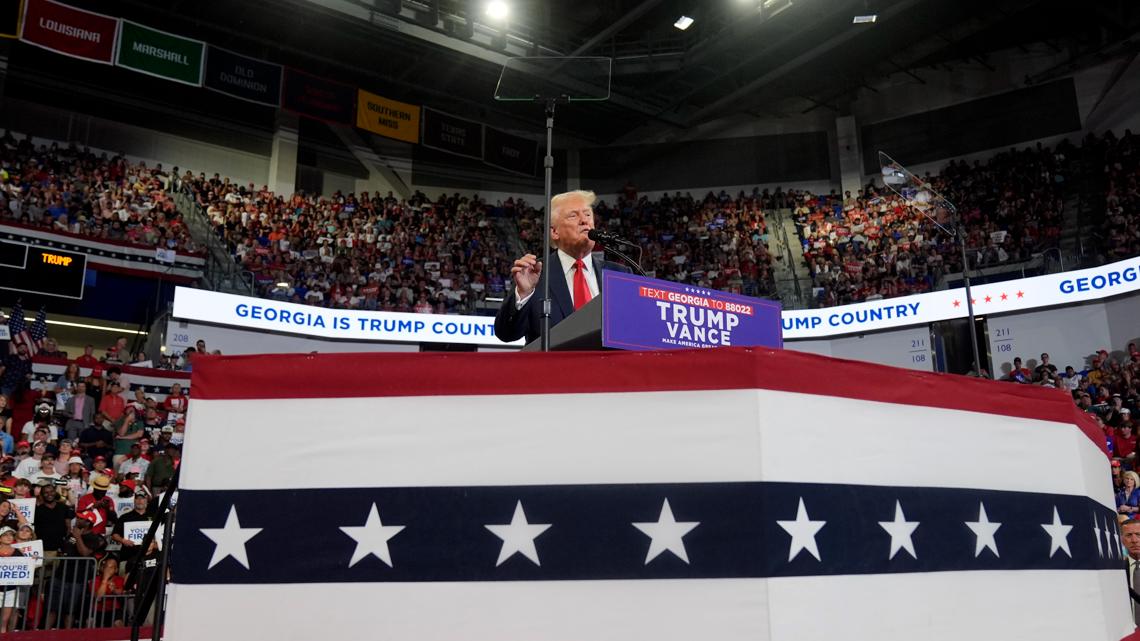
The high-stakes prosecution has brought the international spotlight to Atlanta and placed Georgia at the center of, at times, heated political pressure.
Despite this, the two veteran prosecutors from different political parties agree that the judicial system can handle it.
"It might be difficult, but I think the United States will survive it," said Porter.
James agreed.
"It's America, we're built for this," he said. "Sometimes it's messy. It takes longer than what we would like. But the safeguards are there for a reason to make sure that we get it right."
The Georgia Vote is 11Alive's weekly, 30-minute political conversation program hosted by Faith Jessie and Zach Merchant featuring newsmakers. The show also focuses on how the candidates compare on the issues of highest interest and will highlights perspectives of Georgia voters on those key topics, often ignored by the politicians.

